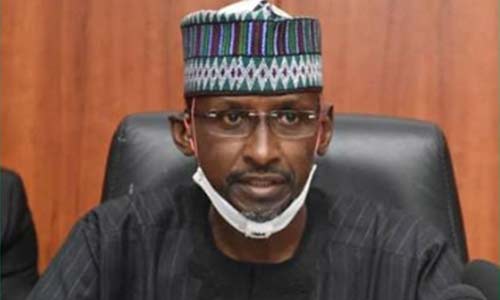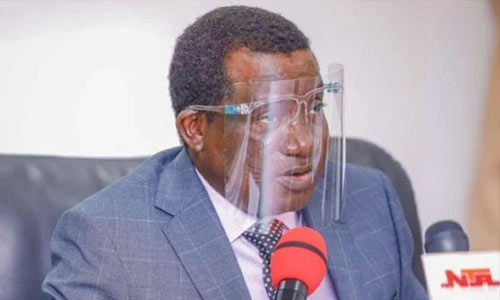THE EXECUTIVE 28/11/2022
FCT Minister Reduces Telcos RoW Charges by 90%

The Minister of the Federal Capital Territory, Mohammed Bello, has said that telecommunications operators who want to deploy broadband infrastructure in green areas will only pay N14.50 as Right of Way charges.
He noted that the discounted charges would be from December 1, 2022, and run for the next two years.
He said this at the official launch of some projects approved by the Federal Executive Council under the Ministry of Communications and Digital Economy in Abuja.
According to the FCT minister, green areas were places lacking any telecommunication infrastructure in the FCT.
He said, “As a part of our contribution to broadband communication, from December 1, 2022, for the next two years, the FCT will charge only N14.50 per linear data for all telecommunications companies that want to deploy broadband in the FCT in green areas. Green areas are areas where we have not already established the infrastructure on ground.”
In 2018, the Federal Government and the 36 states of the federation as well as the Federal Capital Territory Administration agreed on the harmonisation of Right of Way charges across the country.
Before the harmonisation, the telecoms operators had been paying various sums, ranging from N4,000 to N8,000 per metre, in different parts of the country, with such high and arbitrary charges seen as disincentive to investment in the sector.
After the harmonisation, the telecoms operators were required to pay N145 per metre to lay fibre cable anywhere in the country.
The N14.50 fee for green areas by the FCT minister is a 90 per cent reduction from the regular N145 per meter charges.
Also speaking at the launch was the Minister of Communications and Digital Economy, Isa Pantami, who assured that he was working assiduously to improve internet speed and reduce its cost in Nigeria in line with the National Broadband Plan 2020–2025.
He said the Federal Government had approved more than N16bn for broadband infrastructure projects at 18 universities in the country’s six geopolitical zones.
According to him, the project in each selected school would gulp up to N400m.
Pantami noted that digital connectivity and access to information played a role in enhancing the economy.
He further noted that a lot still needed to be done to bridge the connectivity gap in Nigeria.
Pantami further revealed that about 20 markets – three from each geopolitical zones- as well as the popular Computer Village in Lagos and the Wuse market in Abuja were beneficiaries of the broadband penetration initiative.



